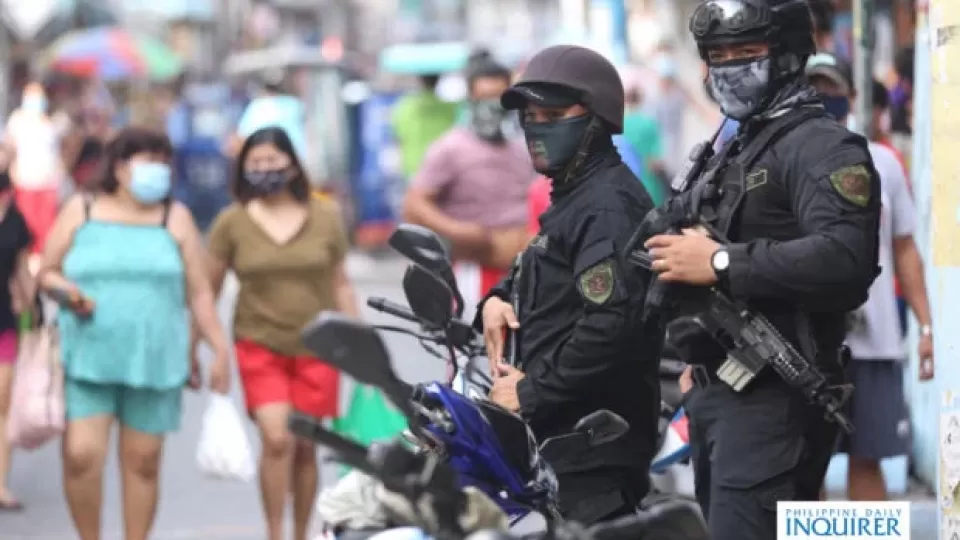April 14, 2023
MANILA – Should the International Criminal Court need further proof of how broken the country’s justice system is, it only has to look into the police’s profiling of human rights lawyers in Mindanao.
A group of lawyers this week urged the Department of the Interior and Local Government (DILG) and the Philippine National Police to investigate Surigao del Sur provincial police director Col. Dennis Siruno, for issuing a memorandum ordering the Lianga municipal police to profile lawyers handling cases filed against alleged communist terrorist groups (CTG).
According to the Union of Peoples’ Lawyers in Mindanao (UPLM) and the Integrated Bar of the Philippines in Eastern Mindanao, Siruno issued the March 29 memo following a meeting with the region’s intelligence division and the National Intelligence Coordinating Agency, where he noted how some lawyers have “repeatedly” provided assistance to alleged rebels in their court cases. Siruno has since described the memo as “fake,” claiming his signature was forged, and vowed to investigate who was behind it.
His statement was hardly reassuring to UPLM chair Antonio Azarcon who said that intelligence operatives have been regularly visiting a family-owned resort, his residence, and his law office. Public Attorney’s Office (PAO) chief Persida Acosta similarly expressed alarm at the mention of PAO lawyer Carol Anne General in Siruno’s memo, and urged the police director to refrain from “Red-tagging and profiling” General as she was “just doing her job.”
Indeed, the UPLM called out Siruno for “gross display of ignorance and blatant disrespect of the law,” as stated in Section 12 of the 1987 Constitution’s Bill of Rights, which guarantees a litigant’s right to a competent and independent counsel or, if he cannot afford it, his right to be provided with one.
The memo also showed the PNP’s failure “to comprehend the role of an independent legal profession in a democratic society,” the UPLM said, adding that aside from being “an affront to the legal community, profiling intensifies the climate of fear and repression pervading in the country [as] dedicated lawyers put their lives on the line performing their duties toward the court, society, and [their] clients.”
In fact, shouldn’t the police, being law enforcers themselves, be “duty-bound and expected to assist in the administration of justice?” the group asked.
This is not the first time that lawyers, and even judges, have experienced harassment and police profiling. In Calbayog City in 2021, the PNP asked a court for a list of lawyers representing activists and victims of Red-tagging. In Mandaluyong, also in 2021, regional trial court (RTC) Judge Monique Quisumbing-Ignacio found her face plastered on a tarpaulin with the Communist Party of the Philippines (CPP) supposedly thanking her for dismissing the case against journalist Lady Ann Salem and trade unionist Rodrigo Esparago. In a 2022 Facebook post, Lorraine Badoy, the former spokesperson of the government’s anti-insurgency task force, accused Manila RTC Judge Marlo Magdoza-Malagar of “lawyering” for the CPP-New People’s Army after she ruled that rebellion and political crimes are not acts of terrorism.
The National Union of Peoples’ Lawyers (NUPL) noted as well that 86 lawyers, judges, and public attorneys have been killed in the past 15 years, including five of its members who have been handling human rights cases for farmers, workers, and political prisoners. It has also documented 262 work-related attacks against human rights workers, with 67 percent of them occurring under the Duterte administration.
Given that the PNP is itself facing a slew of investigations for alleged corruption including cover-ups of drug operations, why would it court further public contempt by persecuting the defenders of the law?
Maybe because some 70 percent of the “trumped-up” cases it has filed in Mindanao against suspected rebels have been dismissed, Azarcon surmised in a TV interview. This, after UPLM lawyers asked for a reinvestigation, noting that the defendants were never given the opportunity to file their counter affidavit mainly because the police had sent the complaint to a wrong or even fake address. Most of the police’s search warrants were also quashed because of planted evidence. Since “90 to almost 99 percent [of the accused] are poor,” public attorneys have taken up their defense, with private lawyers volunteering their services for free. The profiling memo, however, has made even PAO lawyers hesitant to defend CTG cases, the UPLM chair said. Without a lawyer, the cases will not move at all, he added.
On top of defective search warrants, planted evidence, fake addresses, and trumped-up charges, comes Siruno’s memo on profiling lawyers, a brazen move by the police to tamper with court procedures and deny due process to poor and hapless litigants. Such shameless disregard for the law should merit the attention of the DILG, the justice department, Congress, and the PNP leadership who should investigate posthaste this latest attack on the country’s already besieged justice system.


